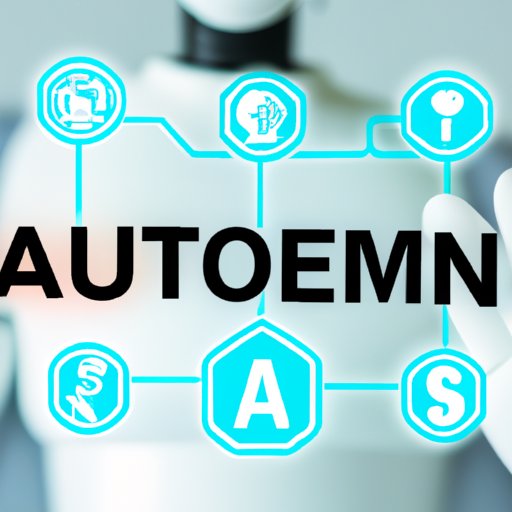Introduction
Artificial intelligence (AI) has become a ubiquitous part of our lives in recent years. From voice assistants to self-driving cars, AI technology is rapidly advancing and transforming the way we live, work, and play. But with this rapid advancement comes the question: is artificial intelligence taking over? This article will explore the potential benefits, risks, and implications of AI taking over, as well as examine the role of governments in regulating AI technology.
Examining the Benefits of Artificial Intelligence Taking Over
The potential benefits of AI taking over are numerous, and can be seen in many areas of life. For example, AI algorithms can help increase efficiency in processes such as data analysis, product development, and customer service. AI can also help improve decision-making by providing insights that may not have been previously available. In addition, AI can potentially automate many tasks, freeing up time for humans to focus on more complex or creative endeavors.

Exploring the Potential Risks of Artificial Intelligence Taking Over
Despite the potential benefits of AI taking over, there are also potential risks that must be considered. One of the most pressing concerns is the potential for AI to displace human workers. According to a recent study by McKinsey & Company, up to 800 million global jobs could be lost to automation by 2030. This could lead to increased unemployment, poverty, and inequality, especially among low-skilled workers who are most at risk of losing their jobs.
In addition to potential job losses, another serious concern is the dangers of unregulated AI. Without proper oversight, AI systems could be used for malicious purposes, such as manipulating public opinion or conducting cyber attacks. This could have serious implications for democracy and security.

Analyzing the Impact of Artificial Intelligence on Human Employment
As AI takes over more and more tasks, it is likely to have a significant impact on human employment. Low-skilled workers are particularly vulnerable to displacement by automation, as their jobs are often easier to automate than those of higher-skilled workers. However, even higher-skilled workers may not be immune from the effects of AI, as some tasks that were once thought to require human expertise can now be accomplished by AI.
Investigating How Companies are Using Artificial Intelligence to Improve Efficiency
Many companies are turning to AI solutions to improve efficiency and reduce costs. For example, banks are using AI to streamline customer service, while retailers are using AI-driven chatbots to provide personalized shopping experiences. AI is also being used to optimize supply chains and manage inventory more effectively. While the potential cost savings are significant, there are also potential risks associated with relying too heavily on AI.

Discussing the Ethical Implications of Artificial Intelligence Taking Over
The potential ethical implications of AI taking over must also be considered. Questions of privacy arise when companies collect and use personal data for AI-assisted decision-making. Additionally, AI systems could potentially be used to make decisions about people’s lives without any input from humans, raising questions of autonomy and free will.
Studying the Effect of Artificial Intelligence on Society
The effects of AI taking over go beyond the individual level, as AI could potentially have a significant impact on society as a whole. AI could potentially facilitate social change by providing access to resources that were previously unavailable. However, it could also exacerbate global inequality if certain groups are left behind due to lack of access or skills.

Assessing the Role of Governments in Regulating Artificial Intelligence
Given the potential risks and implications of AI taking over, governments must play a role in regulating the technology. Governments should ensure that adequate oversight is in place to protect citizens’ rights and safety. They should also consider potential regulatory approaches, such as requiring companies to disclose how they are using AI and setting standards for responsible AI development.
Conclusion
The potential implications of AI taking over are far-reaching and complex. The benefits of increased efficiency and improved decision-making must be weighed against the potential risks of job losses and unregulated AI. Governments must take a proactive role in regulating AI technology to ensure that it is used responsibly and ethically. As AI continues to advance, it is important to remain mindful of both the potential benefits and risks of AI taking over.
(Note: Is this article not meeting your expectations? Do you have knowledge or insights to share? Unlock new opportunities and expand your reach by joining our authors team. Click Registration to join us and share your expertise with our readers.)
